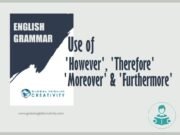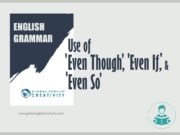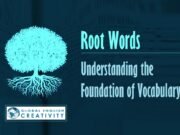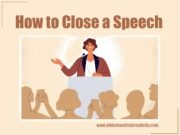More Quizzes
In English grammar, a verb may change its form with five important properties or characteristics. They are Person, Number, Mood, Tense and Voice.
VOICE is an important section of English grammar. In English sentences, Voice associated with verb as well as the quality of that verb. Voice is that form of verb that shows the relationship between the Subject and the Object. Generally, Voice indicates two things: a. whether the subject acts b. whether the subject is acted upon. These two situations form two types of Voice:

| WHAT IS ACTIVE VOICE? |
| Active Voice indicates a sentence where the subject performs the action expressed or denoted by the Verb. e.g. He regularly visits ‘Global English Creativity’ website. |
| WHAT IS PASSIVE VOICE? |
| Passive Voice indicates a sentence where the subject is acted upon by the Verb. e.g. ‘Global English Creativity’ website is regularly visited by him. |
| CONVERSION IN TENSE FORMS |
| TENSE | ACTIVE | PASSIVE |
| Simple present | write/writes | am/ is/ are written |
| Simple past | wrote | was/were written |
| Simple future | shall/will write | shall/will be written |
| Present continuous | am/ is/ are writing | am/ is/ are being written |
| Past Continuous | was/were writing | was/were being written |
| Present Perfect | have/has written | have/has been written |
| Past Perfect | had written | had been written |
| Future Perfect | shall/will have written | shall/will have been written |
| CHANGES IN PRONOUN |
| ACTIVE VOICE (Subjective) |
PASSIVE VOICE (Objective) |
| I | by me |
| You | by you |
| He | by him |
| She | by her |
| It | by it |
| We | by us |
| They | by them |
| EXAMPLES |
| ACTIVE |
| We make pure ghee from milk. We take out milk-cream and collect it for a few days. Then we boil the milk-cream to turn it into ghee. We will sell the ghee. |
| PASSIVE |
| Pure ghee is made from milk. Milk-cream is taken out by us and it is collected for a few days. The milk-cream is then boiled to turn it into ghee by us. The ghee will be sold by us. |
| ACTIVE |
|
Smith opened the door. The watchman gave him the keys. Smith took the keys. He kept them on the table.
|
| PASSIVE |
| The door was opened by Smith. The keys were given to him by the watchman. The keys were taken by Smith. They were kept on the table by him. |
| ACTIVE |
| The peon rang the bell. The teacher called the students. She taught a new lesson. The students opened the books. |
| PASSIVE |
| The bell was rung by the peon. The students were called by the teacher. A new lesson was taught by her. The books were opened by the students. |
| ACTIVE |
| That boy stole a purse. The people caught him. They took him to the police station. The policeman scolded the boy. |
| PASSIVE |
|
A purse was stolen by that boy. He was caught by the people. He was taken to the police station by them. The boy was scolded by the policeman.
|
| ACTIVE |
| John defeated James. He won the first prize. We congratulated him. He thanked us. |
| PASSIVE |
| James was defeated by John. The first prize was won by him. He was congratulated by us. We were thanked by him. |
| ACTIVE |
| The young must respect the elders. We must obey our elders. They love us. We should also love them. |
| PASSIVE |
| The elders must be respected by the young. Our elders must be obeyed by us. We are loved by them. They should also be loved by us. |
| ACTIVE |
| Brian has cleaned the room. Steven has decorated it. Kevin has made tasty dishes. The gardener watered the plants yesterday. |
| PASSIVE |
| The room has been cleaned by Brian. It has been decorated by Steven. Tasty dishes have been made by Kevin. The plants were watered by the gardener yesterday. |
| ACTIVE |
| Peter took a roll of film. He threaded it carefully into the machine. His son invented the machine. Peter then turned the handle to click the photograph. |
| PASSIVE |
| A roll of film was taken by Peter. It was threaded carefully into the machine by him. The machine was invented by his son. The handle was then turned to click the photograph by Peter. |
| ACTIVE |
| The hunter had spread the net. The rats are cutting the net. They have set the birds free. The hunter chased the rats away. |
| PASSIVE |
| The net had been spread by the hunter. The net is being cut by the rats. The birds have been set free by them. The rats were chased away by the hunter. |
| ACTIVE |
| Sophia welcomed the new students. She gave a speech. The students praised her warmth and confidence. They cheered Sophia. |
| PASSIVE |
| The new students were welcomed by Sophia. A speech was given by her. Her warmth and confidence were praised by the students. Sophia was cheered by them. |

| ACTIVE |
| My father looks after this account. We often put many responsibilities upon him. He does his duties well. We pay great respect towards him. |
| PASSIVE |
|
This account is looked after by my father. Many responsibilities are often put upon him by us. His duties are done well by him. Great respect towards him as paid by us.
|
| ACTIVE |
|
The students use the library magazines regularly. The librarian issues books to them. The children also visit the library. They do not make noise in the library.
|
| PASSIVE |
|
The library magazines are regularly used by the students. They are issued books by the librarian. The library is also visited by the children. Noise is not made in the library by them.
|
| ACTIVE |
|
Amelia has given me a coin. She has found it from the rags. I have never seen such a coin in my life. I will give it to father.
|
| PASSIVE |
|
I have been given a coin by Amelia. It has been found from the rags by her. Such a coin has never been seen in my life by me. It will be given to father by me.
|
| ACTIVE |
| Henry was playing cricket. He saw a ball lying on the pitch. He called his friends for help. They did not like it. |
| PASSIVE |
| Cricket was being played by Henry. A ball lying on the pitch was seen by him. His friends were called for help by him. It was not liked by them. |
| ACTIVE |
| Our principal welcomed the new students. He also gave a speech. The students praised him. Our principal thanked them. |
| PASSIVE |
|
The new students were welcomed by our principal. A speech was also given by him. He was praised by the students. They were thanked by the principal.
|
| ACTIVE |
| The clerk requests passengers to stand in a queue. He also tells them, “If you do not follow this instruction, I will not open the ticket window in time.” |
| PASSIVE |
| The passengers are requested to stand in a queue by the clerk. They are also told by him, “If this instruction is not followed by you, the ticket window will not be opened in time by me.” |
| ACTIVE |
| Emma’s father left her in a jungle to die. But a boar took care of her. Hunters brought her up. To avoid marriage she laid down a condition. No one could fulfill it easily. |
| PASSIVE |
| Emma was left in a jungle to die by her father. But she was taken care of by a boar. She was brought up by hunters. To avoid marriage a condition was laid down by her. It could be fulfilled easily by no one. |
| ACTIVE |
| Trees give us many things. They provide shelter to birds. Why should we cut them down. Shouldn’t we grow trees? |
| PASSIVE |
|
Many things are given to us by trees. Birds are provided shelter by them. Why should they be cut down by us? Shouldn’t more trees be grown by us?
|
| ACTIVE |
| What have you bought from the book fair? I have bought nothing. Then why did you visit it? I visited it to pass my free time. |
| PASSIVE |
| What has been bought from the book fair by you? Nothing has been bought by me. Then why was it visited by you? It was visited to pass my free time by me. |

| ACTIVE |
|
Boys will buy toys tomorrow. They will pay money through a credit card. They will also receive a bill. The will check the toys before taking them home.
|
| PASSIVE |
| Toys will be bought by boys tomorrow. Money will be paid through a credit card. The bill will also be received by them. Toys will be checked by them before taking them home. |
| ACTIVE |
| Lucy has written two poems. She has published them. I have just read her poems. I have praised her. |
| PASSIVE |
| Two poems have been written by Lucy. They will be published also by her. Her poems have just been read by me. She has been praised by me. |
| ACTIVE |
|
‘Do you study Physics? Can you solve the difficult sums?’ My teacher asked me. In his reply, I showed him my correct sums.
|
| PASSIVE |
| ‘Is Physics studied by you? Can the difficult sums be solved by you?’ I was asked by my teacher. In his reply, my correct sums were shown to him by me. |
| ACTIVE |
| We should protect trees. We must not cut them needlessly. We would not get enough rain without them. Will you plant a tree in a year? |
| PASSIVE |
|
Trees should be protected by us. They must not be cut needlessly. Enough rain wouldn’t be got by us without them. Will a tree be planted by you in a year?
|
| ACTIVE |
| Mrunal has to repair a car. She has to visit a bank at the same time. How will she do it? Who will help her? |
| PASSIVE |
|
A car has to be repaired by Mrunal. A bank has to be visited by her at the same time. How will it be done by her? By whom will she be helped?
|
| ACTIVE |
| Grace sells delicious sweets. She can prepare parcels daily. We like her sweets. She earns Rs. 10000 per month. |
| PASSIVE |
| Delicious sweets are sold by Grace. Parcels can be prepared by her daily. Her sweets are liked by us. Rs. 10000 are earned by her per month. |
| ACTIVE |
| George plays chess daily. He can play carom also. He won many trophies in chess. He also defeated many champions. |
| PASSIVE |
|
Chess is played by George daily. Carom can also be played by him. Many trophies were won in chess by him. Many champions have been defeated by him.
|
| ACTIVE |
| John will draw pictures. He doesn’t like music. He can make good drawings too. I like his pictures. |
| PASSIVE |
| Pictures will be drawn by John. Music isn’t liked by him. Good drawings can too be made by him. His pictures are liked by me. |
| ACTIVE |
|
Daniel changed his phone for a new one. He bought a new phone today. He didn’t pay money for that. He changed some features in the new phone.
|
| PASSIVE |
| Daniel’s phone was changed for a new one by him. A new phone was bought by him today. Money was not paid for that by him. Some features were changed in the new phone by him. |
| ACTIVE |
|
I must complete the writing task. I may not get payment without it. I need money quickly. Can you help me?
|
|
PASSIVE
|
| The writing task must be completed by me. Payment may not be got without it by me. Money is needed quickly by me. Can I be helped by you? |
Grammar Topics_1
Grammar Topics_2
Useful Expressions in English Speaking
Grammar: Spot the Error









































Wonderful!!! You’re studious & global teacher! Thank you!
Thank you sir
You’re wonderful! Thank you sir
op op op wow ! what is perfect ans that are very useful
Excellent work sir…